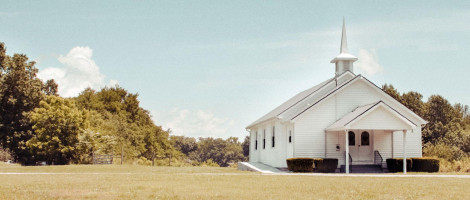Gov. Abbott provides an update on guidance for houses of worship
by John Litzler on April 22, 2020 in News

On April 21, Texas Governor Greg Abbott and Attorney General Ken Paxton issued an updated version of their joint statement titled “Guidance to Houses of Worship During the COVID-19 Crisis.” The guidance document is intended to address frequent questions expressed by those who operate houses of worship in response to Executive Order GA-16 (EO).
This revised guidance replaces the previous joint guidance statement issued by Gov. Abbott and Paxton on April 1. Although neither Gov. Abbott nor Paxton provided an explanation for the revision, it is possible the amended guidelines are in response to a lawsuit filed Thursday, April 16. The lawsuit, filed in Travis County, named both Gov. Abbott and Paxton as defendants and alleges that the previous EO and guidance provided by the two violates the First Amendment right to free exercise of religion. The amendments made to the guidance for houses of worship place an increased emphasis on the fact that houses of worship may remain open and that their voluntary observance of recommended practices will help slow the spread of coronavirus.
A side-by-side comparison of the two guidance statements reveals some key differences.
The April 1 guidance included a paragraph titled “houses of worship provide essential services.” The paragraph stated that any local orders in conflict with the Governor’s EO were superseded by the EO. The April 21 guidance adds the following sentence to the end of that paragraph: “Local governments may not order houses of worship to close.” This additional sentence makes it exceedingly clear that Texas is not closing churches and that neither counties nor cities are allowed to close churches.
Additionally, where the April 1 guidance stated that houses of worship “must” conduct services from home or remotely whenever possible, the relaxed April 21 guidance says houses of worship “should” conduct as many services as possible remotely and “should” follow federal guidelines when providing services in person.
In the April 1 guidance, there was a paragraph titled “some houses of worship must avoid large gatherings.” The paragraph said houses of worship should work with counties and municipalities to evaluate the rate of local community spread. That paragraph has been entirely removed from the April 21 guidance. The paragraph has been replaced with an appeal to churches to be creative and play an important role in Texas’ efforts to mitigate the spread of coronavirus.
In short, the April 21 guidelines for houses of worship clarify that because of religious freedom guaranteed in the Constitution, the guidelines are voluntary (as opposed to mandatory).
The intent of this article is to help church staff and church leaders understand how the Governor’s EO is being applied to churches in Texas and to understand their rights under the law. This article does not offer an opinion as to whether a church should return to in-person services. As the “Guideline for Houses of Worship” says, “houses of worship should conduct as many of their activities as possible remotely.” From a legal perspective, when and how a church in Texas returns to in-person gatherings is the decision of that individual congregation. Churches should prayerfully consider if the permissible action is also the right action.
You can read the April 21 “Guidance for Houses of Worship” here.
Disclaimer: This article provides general information and a general understanding of the law and does not constitute specific legal advice. By utilizing the Texas Baptist website, you understand that there is no attorney/client relationship between you/your church and the author or between you/your church and the Baptist General Convention of Texas. This article should not be used as a substitute for competent legal advice from a licensed professional attorney in your state with the specifics of your situation.
Texas Baptists is a movement of God’s people to share Christ and show love by strengthening churches and ministers, engaging culture and connecting the nations to Jesus.
The ministry of the convention is made possible by giving through the Texas Baptists Cooperative Program, Mary Hill Davis Offering® for Texas Missions, Texas Baptists Worldwide and Texas Baptist Missions Foundation. Thank you for your faithful and generous support.
Subscribe to receive stories like this one directly to your inbox.
We are more together.
Read more articles in: News, COVID-19, Relaunch
More from John Litzler
- Developing an emergency operations plan for your church
- Governor Abbott announces end of mask mandate and other COVID-19 policies
- Churches Weigh Options as Important Nov. 16 Deadline in Boy Scouts Bankruptcy Approaches
- Governor Abbott issues facemask order among other changes
- Paycheck Protection Program Flexibility Act eases loan forgiveness restrictions